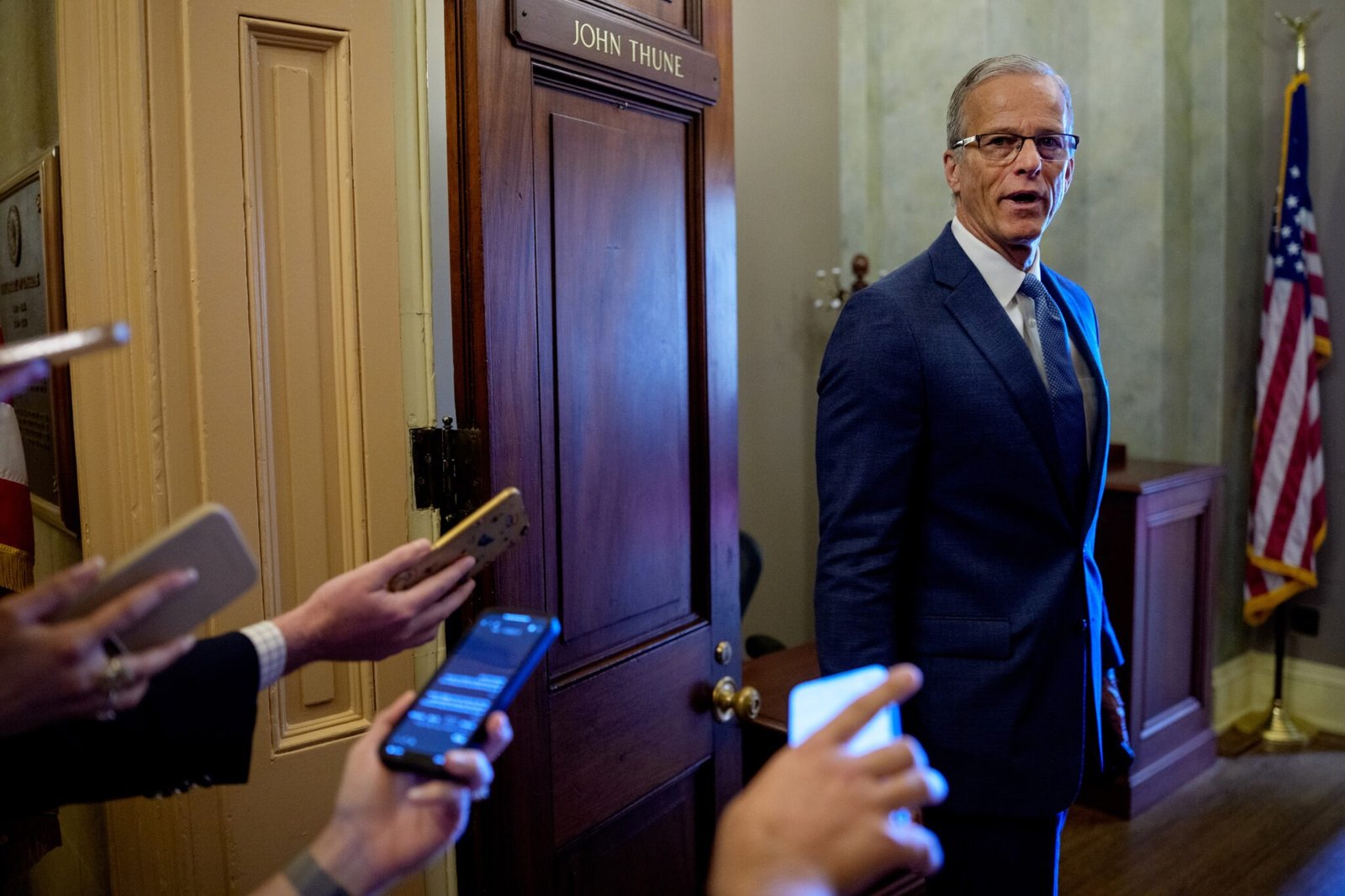DC Bureau
US Senate Launches Crucial Vote-a-Rama on Landmark Tax and Spending Cut Legislation

WASHINGTON — The U.S. Senate embarked on a lengthy amendment voting session Monday, engaging in discussions over numerous proposals from both Republicans and Democrats. This process could significantly alter the upcoming fiscal legislation as final passage approaches.
The anticipated vote-a-rama is expected to extend throughout Monday and potentially into Tuesday. Senators face a rigorous schedule, remaining on the floor during long hours. A final vote will determine the bill’s fate, which could proceed to the House as early as Wednesday morning.
The day’s key debate revolved around a Republican-led decision to utilize current policy rather than current law for assessing the bill’s fiscal implications. Historically, Congress relies on current law to evaluate how legislation impacts annual deficits, especially during budget reconciliation processes.
The 2017 tax law, set to expire at year’s end, skews the deficit outlook when measured against current law. Using current policy offers a more favorable financial portrayal and may alleviate political backlash for Republicans.
Senate Budget Chairman Lindsey Graham emphasized this approach as a strategy to make tax cuts permanent, thus averting future expirations. “What I’m trying to do, and I’m very happy about it, is to make sure the tax cuts don’t expire 10 years from now,” Graham stated. Under reconciliation rules, bills cannot increase the deficit post the 10-year timeframe.
In contrast, Senate Democratic Leader Chuck Schumer criticized the use of current policy, calling it deceptive. He argued that the GOP’s tactics could create disastrous economic conditions, adding, “Republicans can use whatever budgetary gimmicks they want to try to make the math work on paper, but you can’t paper over the real-life economic consequences of adding tens of trillions to the debt.” The Congressional Budget Office confirmed that the bill would contribute $3.253 trillion to deficits over the next decade.
The Senate voted 53-47 along party lines against overruling Graham’s policy approach, allowing the GOP to maintain control over the discussion.
Senators then delved into Democratic amendments targeting Medicaid and the Supplemental Nutrition Assistance Program, but as of Monday afternoon, no Democratic proposals had been accepted. Republicans awaited the chance to cast votes on their amendments.
With a narrow 53-seat majority, GOP leaders can only afford to lose three senators for the bill to pass. Two Republicans, Thom Tillis and Rand Paul, have already declared opposition, complicating the process for GOP leadership.
Senate Majority Leader John Thune positioned the legislation as essential to prevent a tax increase affecting constituents, stating, “This is about extending that tax relief so the same people don’t end up having a colossal, massive tax increase hitting them in the face come January 1.”
Schumer condemned the proposed policy changes, warning that they would reduce access to critical health and food assistance programs. He challenged his colleagues, asking how they could justify taking away health care while offering tax breaks to the wealthy.
As the vote-a-rama unfolds, the popularity of specific amendments may influence the support of GOP senators for the final bill. Republican leaders aim to resist Democratic amendments but can utilize a “wraparound amendment” to negate unwanted changes with a majority vote.
This session not only serves to hash out legislative details but also functions as a strategic platform for Democrats. They hope to leverage votes on high-stakes issues to impact midterm election narratives, particularly focusing on senators from swing states.
Democratic amendments may target vulnerable Republicans, while the opportunity for unlimited amendments presents a rare chance for both parties to position themselves ahead of future elections.


















